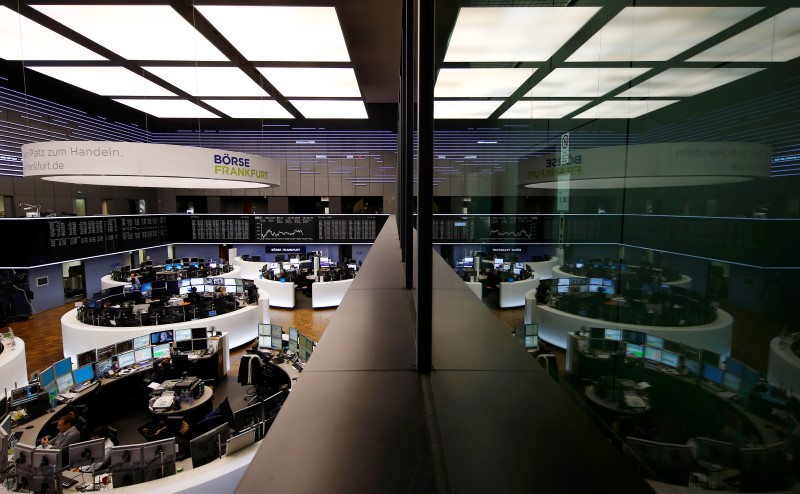* Oil falls as expectations of steps to curb supply fade
* Metals prices fall on strong U.S. data, China demand
concern
* Europe shares rise after early fall on failed French telco
talks
* Asian shares eke out modest gains, China shut for holiday
By Nigel Stephenson
LONDON, April 4 (Reuters) - Oil prices hit one-month lows as
prospects of Middle East producers agreeing to curb chronic
oversupply faded, and other commodities also lost ground as the
dollar stabilised after Friday's strong U.S. data.
Brent crude LCOc1 , the international benchmark, traded
down 36 cents a barrel at $38.31, having fallen as far as
$38.18, its lowest since March 4.
Prices have fallen from highs above $100 a barrel since
mid-2014 on a supply glut. Brent topped $42.50 last month in
anticipation of agreement among producers to freeze output.
However, such steps look increasingly unlikely.
Last week a Saudi prince reportedly said the kingdom would
only freeze output if Iran and other producers did the same.
Iranian Oil Minister Bijan Zanganeh was quoted as saying at the
weekend that his country would increase production and exports
until it reached the position it occupied before sanctions were
imposed over its nuclear programme.
"Macroeconomic concerns and high petroleum inventories are
the oil market's ball and chain and are likely to keep the oil
price between the mid-$30s and low $40s in Q2," Barclays (LON:BARC) said.
Copper prices CMCU3 , which are also sensitive to the value
of the dollar, hit a one-month low of $4,778 a tonne on the U.S.
data and concern about Chinese demand before recovering slightly
to $4,790.
Gold XAU= fell for the second successive day, dropping
about 0.4 percent to $1,217 an ounce.
The pan-European FTSEurofirst 300 share index .FTEU3 rose
0.2 percent. It opened lower on a fall in telecoms stocks
.SXKP after the collapse on Friday of tie-up talks between
Orange ORAN.PA and Bouygues BOUY.PA .
Britain's FTSE 100 index .FTSE also rose 0.2 percent.
MSCI's broadest index of Asia-Pacific shares outside Japan
.MIAPJ0000PUS earlier rose 0.1 percent, although many of its
components were not traded due to a holiday in Greater China.
Japan's Nikkei .N225 fell 0.3 percent, led by a fall in
automakers .ITEQP.T following poor U.S. sales figures.
The dollar rose 0.1 percent against a basket of major
currencies .DXY but fell 0.1 percent to 111.60 yen JPY= . The
euro EUR= dipped 0.1 percent to $1.1370.
The impact of a report on Friday showing the U.S. economy
added 215,000 jobs last month and another showing U.S. factory
activity expanded in March for the first time in six months was
offset by Federal Reserve Chair Janet Yellen saying last week
the central bank would proceed cautiously in raising rates.
"Yellen sent some very powerful messages last week so the
extent of dollar strength on payrolls was limited," said BMO
Capital Markets currency strategist Stephen Gallo.
TREASURY YIELDS
U.S. Treasury yields, which rose on Friday after the
economic numbers, turned lower on Monday. Ten-year yields
US10YT=RR were down 2.4 basis points at 1.77 percent, compared
with 1.79 percent at Friday's New York close.
German 10-year bond yields DE10YT=TWEB , the benchmark for
euro zone borrowing costs, dipped 0.5 bps to 0.14 percent.
Some analysts expect the 10-year yields to test zero again,
as they did a year ago, as the European Central Bank has
increased its monthly purchases of assets, including Bunds, to
80 billion euros from 60 billion.
"The main driving force is the ECB's increased amount of
public sector asset purchases and there's a very favourable
supply-demand imbalance this month," RIA Capital Markets bond
strategist Nick Stamenkovic said.
